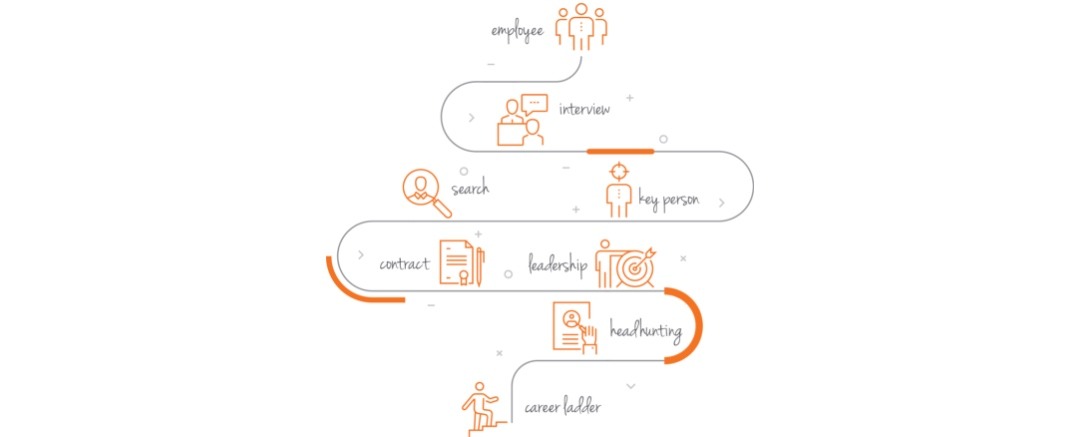Life cycle recruiting, also known as full life cycle recruiting, is a comprehensive approach to talent acquisition that encompasses every stage of the hiring process, from initial job requisition, all the way through onboarding.
Who is life cycle recruitment applicable to?
Realistically, every hiring professional should take a full life cycle approach to recruiting. However, full cycle recruiting is most applicable to growing small and medium-sized companies. At such organizations, HR and Recruiting departments are not heavily siloed nor segmented, so hiring professionals act as de facto jack of all trades, playing a role in every aspect of the recruitment life cycle.
How do you know if you are a full cycle recruiter?
If you find that you manage many or most of the following tasks, congratulations…you’re a full cycle recruiter.
- You work with hiring managers to create job descriptions
- You are responsible for getting jobs posted to job boards, social media, and employee referral programs
- You screen resumes
- You schedule phone screens and interviews
- You manage job and offer approvals
- You disposition candidates that have been passed on
- You are in charge of maintaining recruitment compliance related to EEOC and OFCCP
- You monitor various recruitment metrics to evaluate hiring performance
- You send out offer letters

The Steps Included in Full Life Cycle Recruiting
The reality is, hiring a new employee involves far more than posting a job description and interviewing candidates. Recruiting is driven by an integrated, linear series of yes / no decision points that make up the recruitment lifecycle.
The steps of the life cycle recruiting process include:
Attract and Engage
- Completing a hiring manager intake and defining the ideal candidate profile
- Writing a job description that attracts the ideal candidate
- Posting the job description to appropriate job boards (internally and externally), social recruiting platforms, employee referrals programs, and the like
Manage and Interview
- Reviewing resumes and screening out applicants
- Scheduling and conducting phone screens
- Short-listing candidates
- Scheduling and managing in-person interviews
Offer and Onboard
- Selecting a final candidate
- Managing background checks, employment screens, and reference checks
- Making the offer
- Onboarding your new hire and getting their information into your current systems
Systems That Manage Full Cycle Recruiting
A lot of steps right? And a ton of responsibility. This is what makes full cycle recruiting so exciting. At the same time, however, it can become overwhelming, especially when one small team or just one individual is tasked with managing everything.
Luckily, there are systems available that can help you manage every stage of the recruitment life cycle. Recruiting and hiring software, commonly referred to as applicant tracking systems, provide a platform where full life cycle recruiting can be managed from one centralized place.
Paycor Recruiting was designed by recruiting professionals for HR hiring teams, so it actually thinks and behaves like a recruiter.
Learn more about how Paycor Recruiting can help you achieve your hiring goals.
A quick overview of Paycor Recruiting:
Find Great Candidates
Post to free job boards, reward your employees for their referrals and more, with just a few clicks.
Integrated Careers Page
- Add a fully-branded careers site that matches your website, without IT help.
- Automate Offer Letters & Manage Responses
- Make it easy for candidates to respond and improve your offer acceptance rates.
Interview Scorecards
- Save post-interview feedback automatically through easy-to-use scoring.
Insightful Analytics
- Gain valuable insights into your hiring process and track important metrics, such as time-to-hire and lead sources.
Compliance Reporting
- Keep your company EEO/OFCCP compliant. Automatically store reasons for non-selection, flow logs, hire/offer logs, and more.
Smart Candidate Profile
- Candidate information is seamlessly integrated through the rest of Paycor’s platform so there’s no re-keying.
Candidate Texting
- Strengthen your talent pipeline—instantly communicate with prospects, reconnect with candidates, send follow-up info and timely reminders.
Interested in learning more?
Check out our guided tour for more information on our product functionality. Or if you’d like to talk to our team, click the button below.









